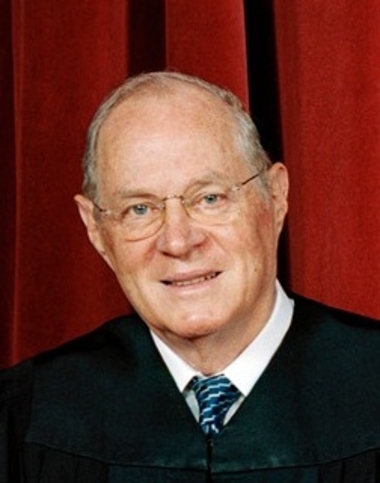Justice Kennedy notes power shift to high court

JUDY LIN, Associated Press
SACRAMENTO, Calif. (AP) — U.S. Supreme Court Justice Anthony Kennedy said Wednesday that congressional lawmakers need to maintain the nation's balance of power by being able to compromise, expressing concerns that the high court is increasingly the venue for deciding politically charged issues such as gay marriage, health care and immigration.
Kennedy, a former Sacramento law school professor, was asked by reporters whether he thought the court was deciding too many issues that can be decided by Congress.
"I think it's a serious problem. A democracy should not be dependent for its major decisions on what nine unelected people from a narrow legal background have to say," Kennedy said. "And I think it's of tremendous importance for our political system to show the rest of the world — and we have to show ourselves first — that democracy works because we can reach agreement on a principle basis."
He made his remarks during a visit to the state capital for the dedication of a library bearing his name in the downtown federal courthouse.
The associate justice appointed by President Ronald Reagan has often been the swing vote on split decisions. He said he's concerned that too many decisions of social and political importance are being shifted to the high court, particularly in an era of "litigation explosion."
Kennedy, 76, dissented in the momentous 5-4 decision last year that upheld the heart of President Barack Obama's health care overhaul, he wrote the Citizens United opinion saying that corporations can pay for political ads and last month, he seemed to side with his more conservative colleagues in suggesting that the Voting Rights Act had run its course.
When asked whether he thought access to affordable care should be a right, Kennedy declined to answer. Instead, he said he has advised that countries that are drafting new constitutions not guarantee affirmative rights such as access to health care, food and education.
"It's not our tradition to have that in our constitution because it's not judicially enforceable," he said. "And what I told those countries ... 'OK, put it into the constitution, but make it an aspirational goal, not an enforceable goal.'"
As for his opinion to grant corporations the right to free speech in Citizens United, Kennedy said time will tell the impact of that decision.
"We're the only branch of government that gives reasons for what we do, and those reasons are either convincing or not," he said. "Of course as time goes on, we'll learn more about it."
Kennedy also urged California lawmakers to provide proper funding for the state's court system after years of budget cuts. He said trial courts have no way to control the number of cases coming in and it's important for legislators to make sure the court can do its job.
"You simply must give to the courts the resources that they need or you're undercutting the rule of law for which we stand. I think it's a very important obligation that legislators have and they have to find the resources," he said.
Copyright 2013 The Associated Press.





